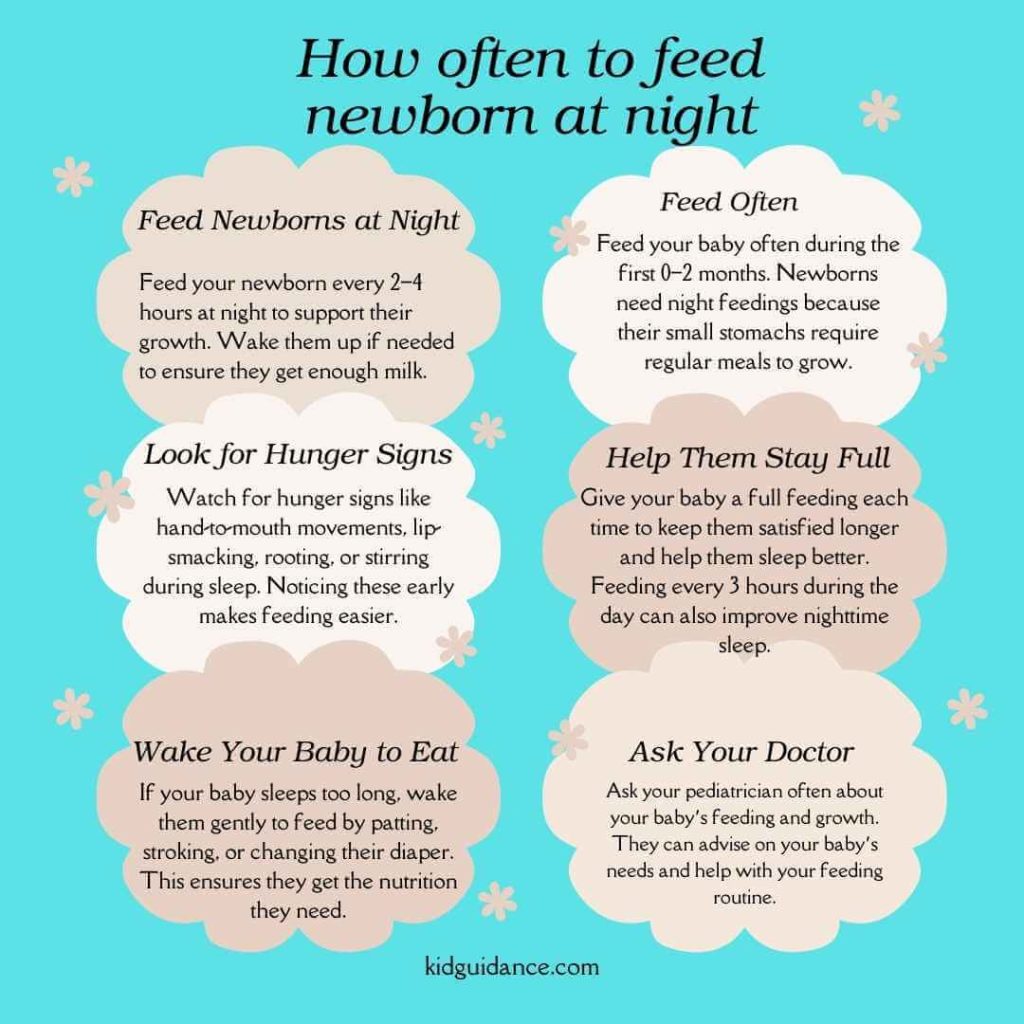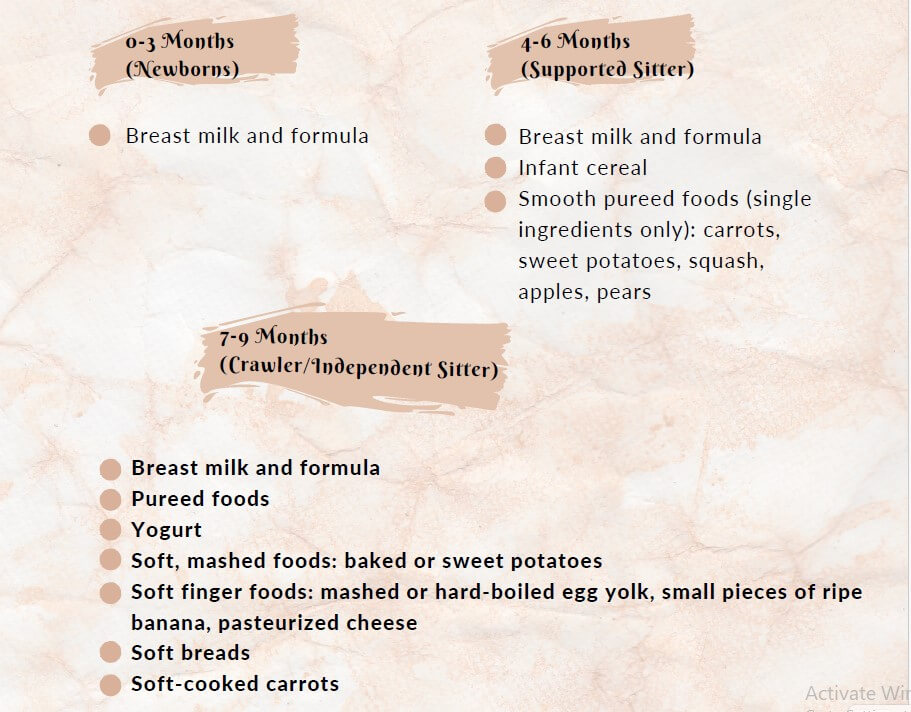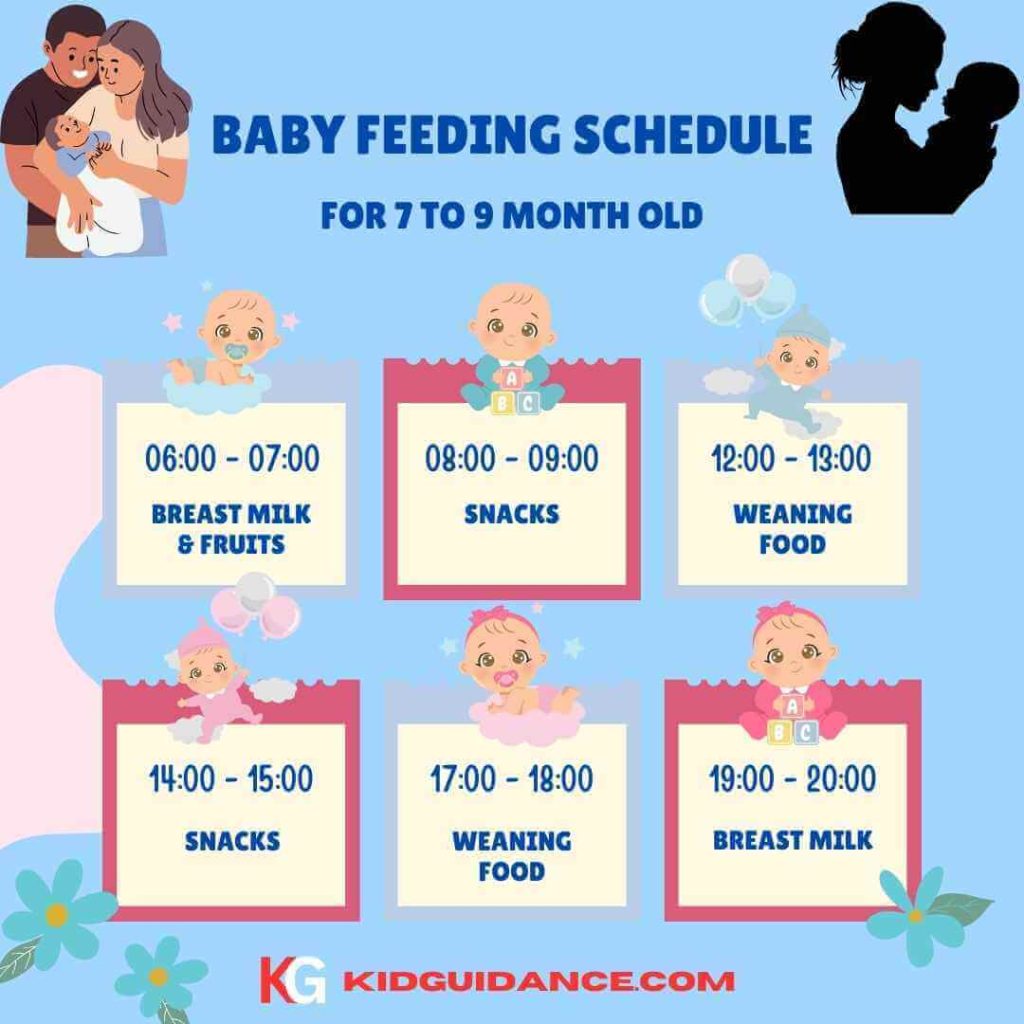My name is Laila. I am a pediatric nurse and a mom of two. I feed my baby every 2 to 3 hours at night. One night, I missed a feeding, and my baby cried after 3 hours. I discovered this timing works best and followed this routine to support my baby’s healthy growth.
Feeding a newborn at night can feel challenging for parents. Learning how often to feed helps your baby stay healthy and makes sleep schedules easier. This guide shows how to plan nighttime feedings, explains why babies’ needs change, and shares tips to make nights smoother. Whether you’re a first-time parent or need new ideas, you’ll find simple advice to help you and your baby.
Many parents wonder, “How often should I feed my newborn at night?” Figuring out a routine can seem hard at first. This guide gives clear answers and helpful tips to create a schedule that works for your family.
Night feeding means giving your baby milk at night, usually between 10 PM and 6 AM. Babies need this because their tiny stomachs can’t hold much milk. It includes:
– Breastfeeding or bottle-feeding when your baby wakes up on their own.
– Dream feeding, where you feed your baby while they are still half-asleep to help them sleep longer.
Babies must eat often at night, especially in the first few months. Here’s how their feeding needs change as they grow:
0–3 months: Feed every 2–3 hours, including at night (about 3–4 times each night).
3–6 months: Feed 1–2 times per night as they start sleeping longer.
6–12 months: Many babies need 1 feed or none as they adjust to solids.
Twelve months and older: Most babies can sleep through the night without feeding.
Keep night feeding calm and quiet to help your baby grow and give you more rest.
My Experience
While working in pediatrics, a newborn’s mother asked me how to know if her baby was feeding well day and night. I shared advice I learned from my professor during my studies:
“If your baby is feeding well, they will pass urine like this:
– On the first day: 1 time.
– On the second day: 2 times.
– On the third day: 3 times.
– On the fourth day: 4 times.
– After that: 6–8 times daily.
If your baby follows this pattern, they are feeding well.”

How to Night Feed Effectively
Best Tips for Night Feeding
Keep Calm and Quiet: Dim the lights and stay quiet to help your baby fall back asleep quickly.
Find a Comfortable Position: Use a nursing pillow or sit in a supportive chair to avoid feeling sore.
Get Supplies Ready: To save time at night, prepare bottles or keep essentials close by and warm the bottle of milk while feeding.
Alternative: To make nighttime easier, keep everything you need close by and warm the milk bottle while you feed your baby.
Watch for Hunger Signs: Feed your baby when they stir, suck on their hands, or show other hunger signals.
These steps make night feedings smoother and more comfortable for you and your baby.
Tips for Night Feeding
Keep It Calm: Use soft lighting and quiet to help your baby relax and fall back asleep.
Feed Safely:
- Stay awake.
- Carefully hold your baby’s head while feeding.
- Burp your baby after feeding to keep them comfortable.
Settle Them to Sleep: Put your baby back in their crib while drowsy but awake to help them learn to fall asleep independently.
Best Practices for Night Feeding
Use dim lights and avoid too much noise to keep the environment calm and quiet. Change diapers quickly to help your baby stay relaxed. Hold your baby comfortably, keep them semi-upright to prevent ear infections, and always support their head and neck.
Every baby is different, so adjust feeding schedules as needed. If you’re unsure about anything, ask your pediatrician for advice. *Always check with a doctor for specific medical concerns.
My Personal opinion:
Newborns must eat every 2–4 hours at night, so you may need to wake up to feed them. Regular feedings are essential for healthy development. Follow these tips for successful night feedings:
Watch for Hunger Signs: Look for cues like hand-to-mouth movements, lip-smacking, rooting, or stirring during sleep.
Wake Your Baby for Feeds: Gently pat them, stroking, undressing, or changing their diaper.
Expect Frequent Feeds: Babies under 2 months often must eat thrice at night.
Aim for Full Feeds: A full feeding can help your baby sleep longer between meals.
Feed Every 3 Hours During the Day: This schedule can encourage longer sleep at night.
Consult Your Pediatrician: Talk to your doctor regularly to ensure you meet your baby’s needs.
These tips have helped many parents and newborns develop healthy feeding routines.

Nighttime Feeding by Age
Babies’ feeding needs change as they grow. Here’s what to know about feeding newborns at night:
0–2 Months: Feeding Often for Growth
How Often to Feed: Every 2–3 hours, even at night.
How Much They Eat: 1.5–3 ounces of breast milk or formula per feed.
Why They Need It: Babies this age don’t know the difference between day and night, and their tiny stomachs hold very little, so they need frequent meals to grow.
What You Should Do:
– Feed your baby often to help them grow and gain weight.
– Watch for signs of hunger like rooting, fussing, or lip-smacking.
– Keep the lights dim and the room quiet to calm your baby during night feedings.
Your baby will wake up 3–4 times each night for food during the first two months. Feed them whenever they seem hungry instead of sticking to a strict schedule. These regular feedings are normal and help your baby grow strong and healthy.
2-4 Months: Gradual Reduction in Nighttime Feeds
- How Often to Feed: Feed your baby every 3–4 hours, with longer 5-hour stretches at night.
- How Much They Eat: Give your baby 4–6 ounces of milk at each feeding.
- What They Do: Your baby starts sleeping longer and may naturally skip one feeding.
As your baby grows, their feeding schedule changes. Feed them every 3–4 hours, with 2–3 wake-ups at night. They now drink 4–6 ounces per feeding, which keeps them full longer. Some babies start sleeping longer, but nighttime feeds are essential for growth.
What You Should Do:
- Set up a bedtime routine that includes a last feeding.
- Wait a little before rushing to your baby if they stir to see if they can settle independently.
My observation
At the hospital, many mothers tell me their babies sleep for long periods, like 4–5 hours, and they don’t feed them. I notice these babies often become dehydrated. I advise them to feed their baby every 2–3 hours. If the baby sleeps, I suggest waking them up to feed.
4-6 Months: Emerging Sleep Patterns
How Often to Feed: Feed your baby once or twice at night.
How Much to Feed: Give your baby 6–8 ounces of milk at each feeding.
What Your Baby Does: Some babies sleep through the night, but others still wake up for milk.
Your baby might sleep 4–5 hours between feeds and only wake up 1–2 times at night. Many babies start sleeping for 6-hour stretches and drink more milk, usually 6–8 ounces per feeding. This is when more extended sleep periods may start.
What You Can Do:
– Slowly increase the time between nighttime feeds.
– Try a “dream feed” before bedtime to prevent later wake-ups.
– Start giving solids during the day if your doctor suggests it.
6-9 Months: Fewer Night Feeds, More Daytime Nutrition
How Often to Feed: Feed your baby once at night or not at all if they eat enough during the day.
How Much to Feed: Give your baby 7–8 ounces of milk each time.
What Your Baby Does: Most babies start sleeping longer, often 8 hours or more, and do well with sleep training.
At this age, solid foods help reduce nighttime feedings. Your baby can stay full longer because they get solid food and milk during the day.
What You Can Do:
– Help your baby self-soothe with gentle patting or a favorite toy.
– Feed your baby healthy, filling foods daily to keep them full at night.

9-12 Months: Transition to Sleep Without Feeding
How Often to Feed: Stop feeding your baby at night; most don’t need it anymore.
How Much to Feed: Ensure your baby eats enough daily to stay healthy.
What Your Baby Does: Babies this age should sleep through the night without waking for food.
At this stage, babies eat enough solids and milk during the day to stay full all night. Most can sleep without needing feeds. Some may still want a comfort feed, but this is more about habit than hunger. They usually eat 3–4 times during the day.
What You Can Do:
– Slowly stop giving comfort feeds.
– Keep a regular sleep routine and feed your baby healthy meals during the day.
How to Establish a Nighttime Feeding Routine
Nighttime Feeding Routine
Feed at Regular Times: Stick to the exact times each night to create a routine.
Keep It Calm: Use dim lights and keep the room quiet during feedings.
Space Out Feeds: Gradually increase the time between feeds as your baby grows.
Be Patient: Give your baby time to adjust to changes.
Talk to a Doctor: Consult your pediatrician if you’re unsure about the schedule.
I noticed my friend’s baby was becoming unhealthy, so I asked for the reason. He told me he didn’t know how to feed the baby properly. I told him to feed the baby every 2–3 hours and keep this routine at night too.
Steps for Better Sleep
Start a Bedtime Routine: Before the last feed, use calming activities like a bath, massage, or lullaby.
Track Feeding: Log when and how much your baby eats to avoid nighttime hunger.
Know Hunger Signs: Watch for rooting or fist-sucking for hunger, not mild fussing.
Create a Sleep-Friendly Space: Keep the room dark, quiet and the crib safe.
Wean Night Feeds: Offer less milk and gradually increase the time between feeds.
Encourage Self-Soothing: Put your baby in the crib, drowsy but awake.
Use Dream Feeding: Feed your baby at 10–11 PM without waking them fully to extend sleep.
These tips can help your baby sleep longer and make nighttime easier for you both!
Why Do Babies Go Longer Between Feeds at Night?
Babies start going longer between night feedings as their bodies grow and change:
Their Stomachs Get Bigger: Babies’ stomachs hold more milk, so they stay full longer.
They Digest Better: Babies absorb more nutrients and calories from each feeding as their digestion improves.
Hormones Help: Hormones like melatonin and growth hormones lower their need for food at night.
They Sleep Longer: Babies begin sleeping in longer stretches, which matches natural feeding rhythms.
Parents usually see these changes around 2–3 months when babies know the difference between day and night. By 6–12 months, most babies can sleep all night without eating. Breastfed babies may need night feeds longer than formula-fed ones, and some babies stop night feeds as early as 4–6 months. Every baby grows at its own pace, so feeding needs can differ.
When Do Babies Stop Eating at Night?
Most babies stop eating at night between 6–9 months, based on a few things:
Grow Well: Babies who gain weight steadily often stop night feeds sooner.
Eat Enough in the Day: Eating enough during the Day keeps them full at night.
Learn to Sleep Better: Babies who can calm themselves and sleep longer don’t need to eat at night.
By 9–12 months, most babies sleep all night without feeding if they eat enough during the Day. Pay attention to why your baby wakes up—are they hungry or just stirring? As you learn their habits, you can stop night feeds when they’re ready.
At What Age Do You Stop Feeding Your Baby Every 3 Hours?
How Babies Space Out Feedings
Babies begin to go longer between feedings as they grow:
Birth to 2 Months: Feed every 2–3 hours because their small stomachs need frequent refills.
2–4 Months: Feed every 3–4 hours as their stomachs grow and they digest milk more slowly.
3.4+ Months: Some babies can stretch feeds to 4–5 hours during the day and sleep longer at night.
Most babies start going longer between feeds by 4 months, but some still need food every 3 hours.
When to Stop Night Feeding
Babies usually stop night feeds when:
They Are 6+ Months Old: Many babies no longer need night feeds by this age.
They Grow Steadily: They gain weight and grow at a healthy rate.
They Eat Enough in the Day: Milk and solids during the day keep them full at night.
They Show Signs:
– Drinking less milk at night.
– Sleeping 5–7 hours without waking.
– Self-soothing back to sleep.
Signs Your Baby Is Ready
Longer Sleep: Sleeps 5–7 hours without waking for food.
Eats More in the Day: Compensates for fewer night feeds with bigger daytime meals.
Skips Feed Easily: Drinks less or skips night feeds without fuss.
Self-Soothing: Can settle back to sleep on their own.
How to Stop Night Feeds
Feed More During the Day: Increase milk or solids in the daytime to meet their needs.
Give Less Milk at Night: Reduce the amount of milk by 1–2 ounces every few days.
Space Feeds Further Apart: Add 15–30 minutes between night feedings.
Teach Self-Soothing: Use gentle patting, a pacifier, or a comfort object instead of feeding.
Watch for Hunger Cues: Ensure they adjust well and gain weight.
With these steps, your baby can transition to sleeping through the night comfortably and healthily.
My Opinion:
- Follow a regular feeding schedule every night.
- Keep the room quiet and calm while feeding.
- Slowly increase the time between feeds as your baby gets older.
- Teach your baby to fall asleep without needing to feed.
- Offer more food during the day to help reduce nighttime feedings.
- Remember, every baby is different and grows at their own pace.
- Ask your doctor for advice if you have questions about feeding.
FAQs
How Often Should I Feed My Newborn at Night?
Newborns eat every 2–3 hours at night, usually 2–4 times. As they grow, they eat less often: 0–2 months every 2–3 hours, 2–4 months every 3–4 hours, 4–6 months every 4–6 hours, and 6–9 months only 1–2 times. Follow their hunger cues, as every baby is different.
Do Breastfed and Formula-Fed Babies Need Different Night Feeding Schedules?
Breastfed babies usually eat every 2–3 hours because they digest breast milk quickly. Formula-fed babies eat every 3–4 hours since formula takes longer to digest.
How Do I Know My Baby Is Hungry at Night?
Watch for hunger cues like:
– Turning their head toward a touch (rooting).
– Sucking on their hands or fingers.
– Getting fussy or restless before they start crying.
Can I Feed My Baby More During the Day to Reduce Night Feeds?
Yes, feed your baby more often or give them bigger feeds during the day. You can also try “cluster feeding” in the evening to help them sleep longer.
How Long Should Night Feedings Take?
Breastfed babies usually take 20–30 minutes for night feedings, including burping, while formula-fed babies take 15–20 minutes.
When Can I Expect My Baby to Sleep Through the Night Without Feeding?
Most babies start sleeping through the night without feeding by 6–9 months, but some may still wake up for comfort or hunger during growth spurts.
Is It Okay to Use Dream Feeding at Night?
You can use dream feeding—feeding your baby while they stay asleep—to help them sleep longer at night. Feed them around 10–11 PM before you go to bed.




